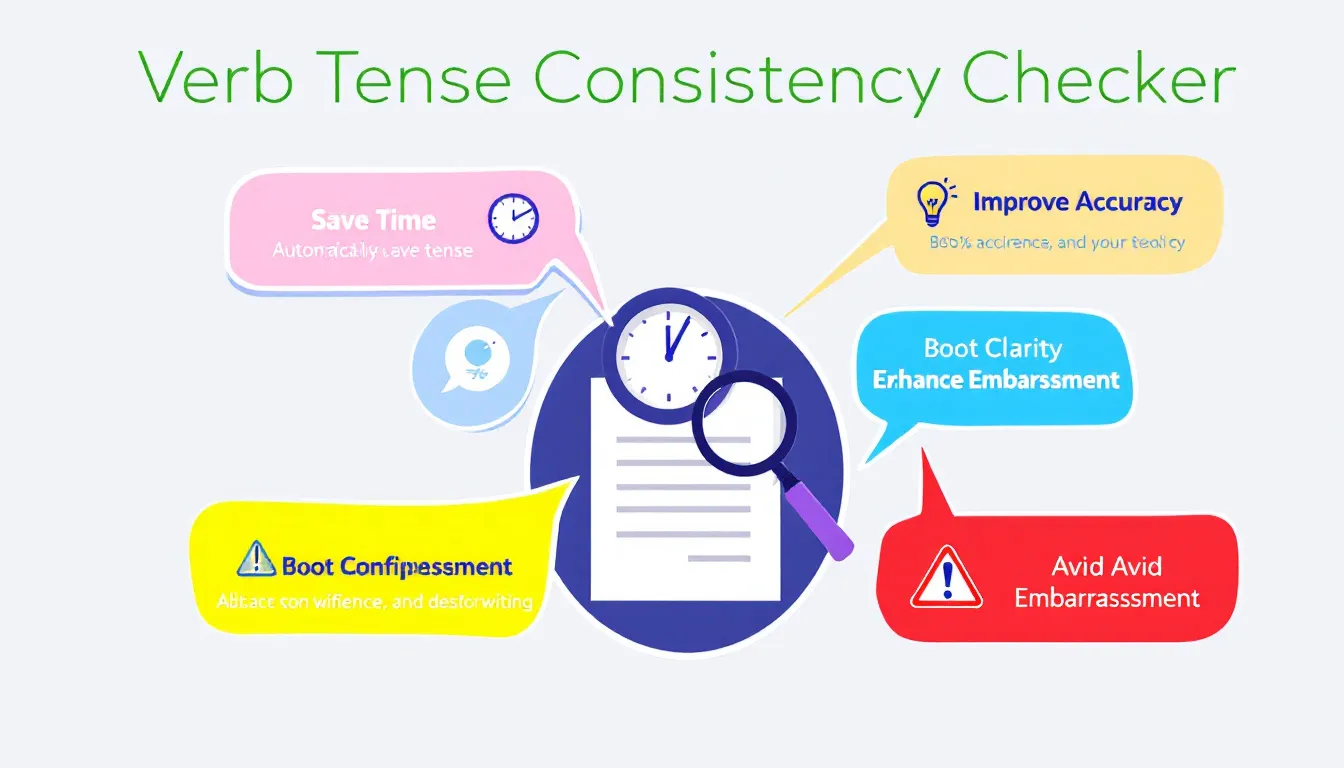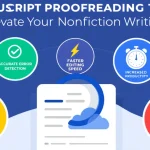Verb Tense Consistency Checker
Is this tool helpful?
How to Use the Verb Tense Consistency Checker Effectively
Follow these simple steps to get accurate feedback on your writing’s verb tense consistency:
- Enter your text: Paste or type the passage you want to analyze into the input box. For example, try:
“Last summer, she traveled to Japan. She enjoys exploring new cultures and plans to visit China next year.” - Submit for checking: Click the “Check Tense Consistency” button to start the analysis.
- Review the results: The tool highlights inconsistent verb tenses and suggests corrections to maintain a uniform tense throughout.
- Apply the corrections: Use the suggestions to revise your text, ensuring your writing flows smoothly without confusing tense shifts.
- Copy the feedback: You can easily copy the analysis to your clipboard for reference or further editing.
Another example to test:
“The team is reviewing the reports submitted last week. They will finalize the proposal tomorrow and have been working hard to meet the deadline.”
What Is the Verb Tense Consistency Checker and Why Use It?
This tool helps you maintain consistent verb tenses in your writing, improving clarity and professionalism. By identifying shifts between past, present, and future tenses that happen unintentionally, it prevents confusion for your readers.
The Verb Tense Consistency Checker works by analyzing your text to detect any uneven tense transitions. It then offers clear suggestions to align your verbs with the intended timeframe, making your writing easier to understand and more polished.
Benefits of Using This Verb Tense Consistency Checker
- Clearer communication: Ensures your readers follow your ideas without confusion caused by tense shifts.
- Faster proofreading: Saves you time compared to manually scanning for tense errors.
- Improved writing skills: Helps you learn where and why tense consistency matters.
- Professional tone: Polishes your documents for academic, business, or creative use.
- Versatile across genres: Works well with essays, reports, stories, articles, and more.
Practical Uses of the Verb Tense Consistency Checker
You can apply this tool across many types of writing to enhance accuracy and flow:
Academic Writing
Keep scientific papers and essays consistent by using the proper tense for research descriptions and conclusions. For example:
“We observed increased enzyme activity during the experiment. These findings support the hypothesis that temperature affects reaction rates.”
Business Documents
Ensure reports and proposals use the correct tense to describe past achievements and future plans. For instance:
“The team completed the first phase of development. We are now preparing for the upcoming product launch.”
Creative Writing
Maintain smooth storytelling by managing tense shifts in narratives and dialogue. For example:
“He had lived in the city for years. Now, he focuses on planning his escape. Tomorrow, everything changes.”
Journalistic Articles
Use consistent tenses when reporting events that have happened, are happening, or will happen. For example:
“Officials announced new safety measures yesterday. These rules aim to reduce accidents next year.”
Learning and Teaching ESL
Non-native speakers can improve their grasp of English tenses by seeing real-time feedback on tense consistency. This tool supports language learners by highlighting appropriate verb forms.
How the Tool Detects and Corrects Verb Tense Issues
This checker scans your text for:
- Unexpected tense shifts: For example, moving from past to present without clear reason.
- Incorrect perfect tenses: Misuse of present perfect, past perfect, or perfect progressive forms.
- Inconsistent tense in complex sentences: Where multiple clauses affect verb tense choice.
- Mixed time references: Ensures logical tense usage within different timeframes.
It highlights these issues and provides suggestions to correct your writing, like:
“The team completed the tasks. They are preparing the presentation.” → “The team completed the tasks. They prepared the presentation.”
When intentional tense shifts align with narrative style, such as flashbacks or future predictions, the tool respects these choices and focuses on maintaining overall flow.
Frequently Asked Questions About Verb Tense Consistency
How does the tool decide which tense is correct?
It analyzes sentence context to identify your main tense and spots deviations that don’t fit logically, then offers alternatives to improve consistency.
Can I use this checker for different writing styles?
Yes, it works with academic, professional, creative, and casual writing styles to keep your tenses consistent in every context.
Does it fix other grammar errors?
The primary focus is on verb tense consistency, but it might highlight related tense-related grammar issues. For full grammar checks, consider combining with a grammar tool.
Is it suitable for English language learners?
Absolutely. This checker helps learners identify and understand tense use, improving their writing skills.
Can it recognize complex tenses like perfect progressive?
Yes. It understands nuanced tense forms, helping you use them correctly in your writing.
Should I use the checker regularly?
Use it often during writing and editing to maintain consistent tense usage throughout your drafts.
Can it handle tense shifts in dialogue?
Yes, it accounts for dialogue often using different tenses than narration and adjusts suggestions accordingly.
How does it manage purposeful tense shifts in literature?
The tool recognizes literary devices like flashbacks or historical present tense and offers corrections that maintain your stylistic intent.
Conclusion: Strengthen Your Writing with Consistent Verb Tenses
Maintaining consistent verb tenses boosts the clarity, professionalism, and readability of your writing. This Verb Tense Consistency Checker helps you identify uneven tense shifts and guides you toward more cohesive text.
Use it to polish academic papers, business reports, creative stories, or everyday writing, saving time and improving your skills as you edit. Combine the tool’s suggestions with your growing knowledge to produce clear and engaging writing.
With steady practice, you will naturally maintain smooth verb tense flow, allowing your ideas to shine and your message to connect clearly with readers.
Important Disclaimer
The calculations, results, and content provided by our tools are not guaranteed to be accurate, complete, or reliable. Users are responsible for verifying and interpreting the results. Our content and tools may contain errors, biases, or inconsistencies. Do not enter personal data, sensitive information, or personally identifiable information in our web forms or tools. Such data entry violates our terms of service and may result in unauthorized disclosure to third parties. We reserve the right to save inputs and outputs from our tools for the purposes of error debugging, bias identification, and performance improvement. External companies providing AI models used in our tools may also save and process data in accordance with their own policies. By using our tools, you consent to this data collection and processing. We reserve the right to limit the usage of our tools based on current usability factors.







